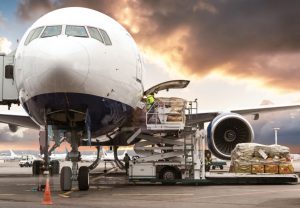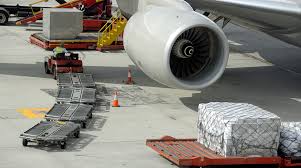Time to retain focus on digitisation, innovation and industry collaborations

To know how Covid-19 pandemic has impacted different sectors and industries in India, www.lifeandmore.in invited experienced professionals from different fields to talk us through the challenges ahead as also offer solutions and suggestions to emerge victorious from the present state of affairs. Beginning today, read all this and more in
our new weekly column – THE PERFECT VIEW
GLYN HUGHES
There will, no doubt, be some long-lasting impacts on society emanating from the current Covid-19 crisis when it is consigned to the history books. We, as individuals, will certainly be different; we will work differently, interact with each other differently and appreciate things differently. And from the positive impact that air cargo has had as it continued to operate I’m certain that it will be indelibly etched in the minds of everybody around the planet, of how the air cargo industry responded to help frontline medical staff and those infected with the virus by transporting much needed medical supplies and medicines.
But what of the future? The airlines will come out of this crisis looking very different. Passenger confidence will take a while to come back. Many airlines will resize as they may not be able to carry a fleet designed for 2020 passenger levels in a market where numbers are less than in 2017-18. I think it will also accelerate the arrival of a hands-free industry: we’ll see a lot more digitalisation.
We should also reflect on the innovative way the airlines have mobilised their grounded passenger fleets for cargo only operations which has also been very impressive. Employing new safety risk assessments, operational processes and in some cases installing new global networks in such a short time frame has been remarkable.
With nearly two-thirds of the world’s passenger fleet grounded, removing nearly 40% of the global air cargo capacity, the utilisation of the industry’s fleet of freighters has increased and many previously parked aircraft have been returned to service. This, together with the growing number of passenger aircraft operating as cargo only flights, has helped address some of the current capacity shortfall.
The crisis has also demonstrated that governments, international regulatory agencies and industry can successfully collaborate to design effective solutions and regulatory frameworks which have supported the continuance of air cargo operations whilst most passenger services were grounded. We hope this spirit of targetted multi-agency activity centred on common objectives can continue once the current crisis is over.
From a business perspective, looking ahead, we hope that 2021 will present a less volatile business environment but with the expected reduction in passenger numbers we can anticipate challenges in achieving global cargo connectivity until the passenger networks return to full scale operations. This will require more agile supply chains and perhaps the continuance of passenger aircraft operating cargo only flights.
What we have now is visibility of air cargo. And once a Covid-19 vaccine is developed, the sheer scale and timeliness of global distribution will once again show the value of air cargo in times of crisis, as well as in times of economic expansion.
Air cargo will also be critical to support factory reopening with urgent supply chain restocking of components and movement of finished goods. But we can anticipate a rollercoaster ahead of us for a while. We expect strong growth in ecommerce transactions to continue as they have these past months as they provided a unique connection for people, adhering to social isolation, to purchase much needed items during this difficult period. We can also expect that once traditional consumerism returns as shops start to reopen air cargo will be vital for restocking.
Unfortunately, we can also anticipate that at some point this year the economic contraction will result in slowed activity and workers who have had employment impacted will focus on replenishing savings drawn upon during the lockdown. This may have a detrimental effect on consumer behaviour later in the year.
In conclusion, difficult and challenging times require innovative and agile responses. The entire air cargo industry can be proud of how it responded to Covid-19 and let’s hope the lessons learnt will not be lost. We need to retain the focus on digitisation, innovation, regulatory and industry collaboration, core services, quality-based supply chains and most of all the need to maintain recognition of the value of customer relationships, partners and employees. If we do then air cargo has a great future and will be even more prepared for the next crisis, when it arises, to support the global community.
The author is Global Head of Cargo, IATA



